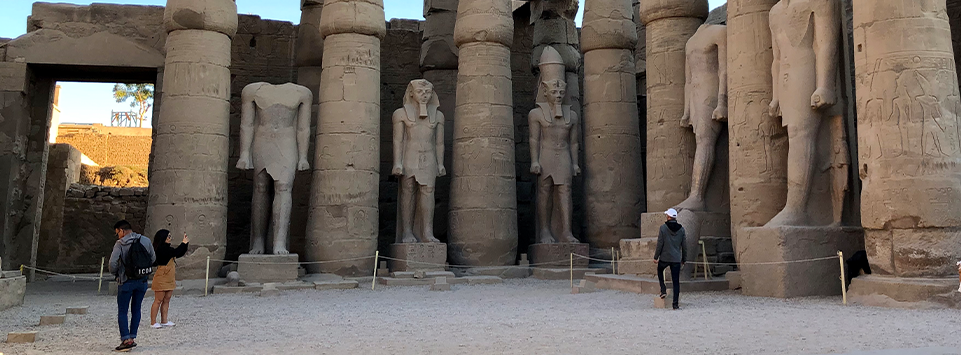Learning Abroad

The Honors College offers learning abroad trips to add an experiential dimension to the Honors curriculum and provide a peak experience in a student's success that will last a lifetime. Previous trips have included Italy, Greece, Tunisia, Egypt, the Netherlands, Ireland, Jordan, and Israel. All learning abroad programs and courses are open to all students, regardless of major, discipline, or membership in the Honors College.
Programs are offered in the Fall, Winter, and Summer sessions and range from five days to 6 weeks.
Upcoming Programs
In the Honors College at the University of Houston, we believe that cross-cultural experiences are crucial to transformative learning and personal growth. As such, we continue to plan. Check out these great program options. Additional details will be added as available.
Dominican Republic: Political Ecology
This interdisciplinary course and trip consider how the study of politics and of the environment intersect. The lenses of political science and local ecology will be focused on questions of sustainability and community and economic development using the community of Las Terrenas in the Dominican Republic, where we will travel, as our case study. Las Terrenas’ natural springs, Atlantic coastline, beautiful beaches, mangrove-lined wetlands, and teeming coral reefs provide the ecological laboratory for students’ community-engaged research and study. How does this biological regime interact with local, national, and global political forces? What are the difficult choices that communities face when prospects of long-term environmental degradation are put into tension with immediate community, economic, and political needs? In partnership with local communities, we will consider how to manage natural and community resources through tenets of sustainable development. Instructor permission is required to enroll, and enrollment in the course is required for the trip.
>APPLY HERE<
Rome, Italy: Global Bioethics Learning Abroad with the UNESCO Chair in Bioethics & Human Rights
From the ancient temples of Asclepius, the Greek god of medicine, to L'Ospedale di Santo Spirito, the earliest hospital in Europe, Rome has been important to the practice of medicine for millennia. This Honors College Learning Abroad trip will allow students to engage with the city of Rome, with cutting-edge issues in bioethics, and with medical humanities from a global, cross-cultural perspective. Partnering with the international bioethics faculty that make up the UNESCO Chair in Bioethics and Human Rights, students will take part in a site-based learning program that allows them to simultaneously participate in the bioethics initiatives of the UNESCO Chair and the histories and cultures of Rome. Join us for an exciting introduction to the global engagements of the UNESCO Chair in Bioethics & Human Rights and the city of Rome!
>APPLY HERE<
Trip deposits are non-refundable. Students are financially responsible for trip balances; program fees may not be refunded within 90 days of travel. Please check with your trip leader on payment schedules. Acceptance into a program is an acknowledgment of all travel-related and program fees.
For information on other Learning Abroad Programs at the University of Houston, please visit the Office of Learning Abroad's website.